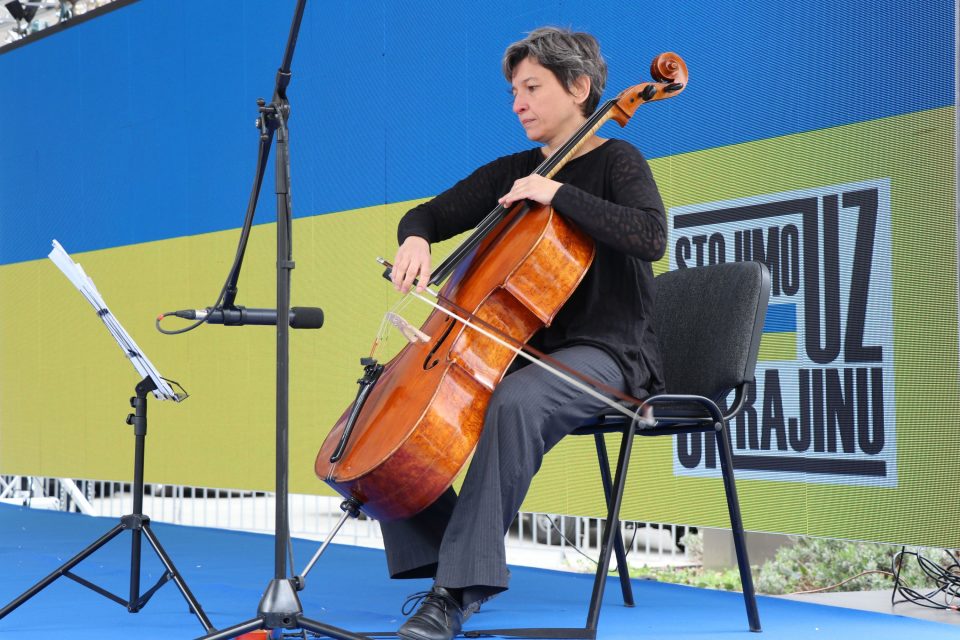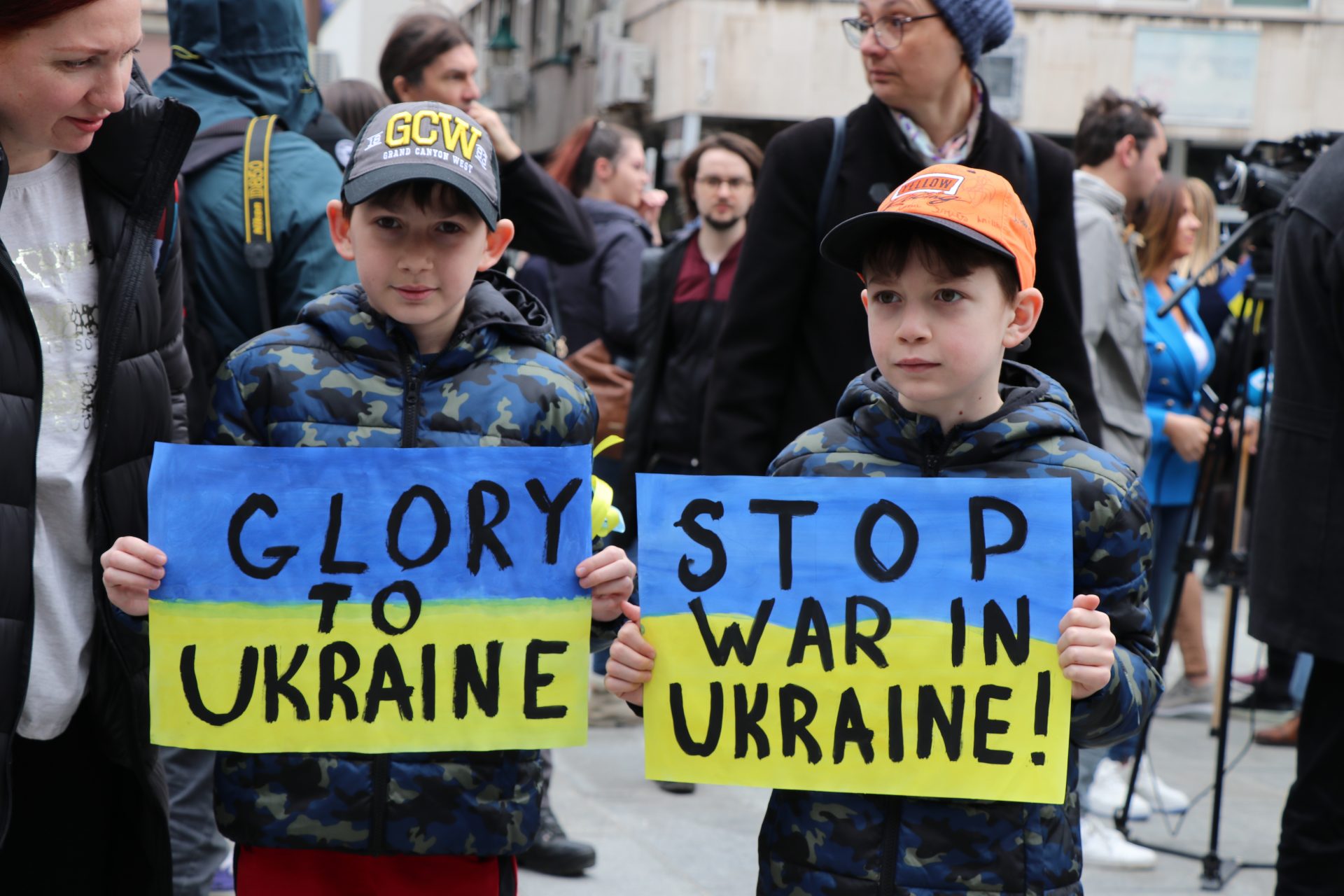
In the days marking the 30th anniversary of the longest siege of a capital city in modern history, hundreds of Sarajevo citizens came out to protest Russia’s aggression against Ukraine, sending a unique message of sympathy to the people of Ukraine. In addition, Sarajevans urged BiH authorities to enable Ukrainian refugees to stay legally in our country for more than 30 days.
Benjamina Karić, the Mayor of Sarajevo, said that the daily suffering of the Ukrainian people is reminiscent of the suffering of the citizens of Sarajevo, but also of all Bosnians and Herzegovinians during the 1990s war. “It evokes difficult emotions in us and awakens our empathy in support of the Ukrainian people,” said Karić at the “We stand with Ukraine” protest which was organized by the Post-Conflict Research Center on April 9th in Sarajevo.
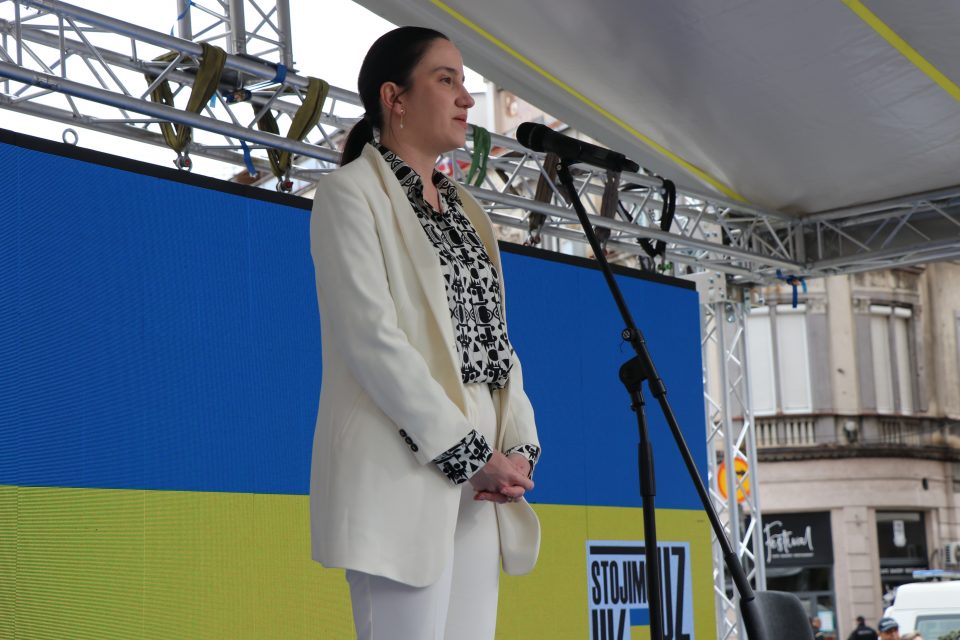
Velma Šarić, president and founder of the Post-Conflict Research Center, said that supporting Ukraine is the responsibility of all those who believe in justice, equality, tolerance, and peace. “Support for Ukraine is support for all victims and survivors who have experienced or continue to experience injustice, crimes, and genocide – from Bosnia and Herzegovina to Rwanda, Syria, Yemen and more,” Šarić said.
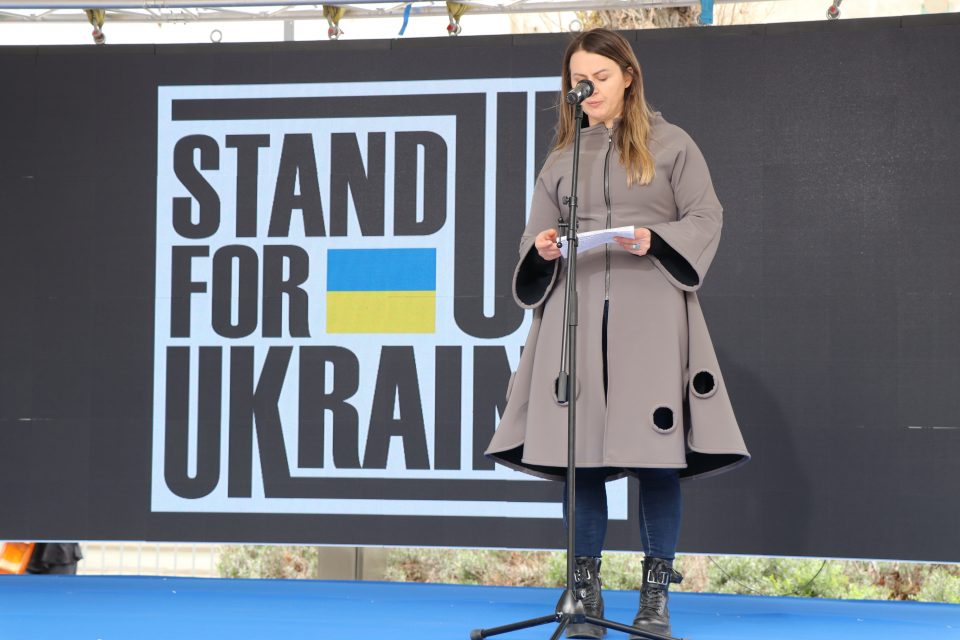
She appealed to the Council of Ministers of BiH to resolve the issue of the stay of Ukrainian refugees in the territory of BiH, and to extend the period which they are allowed to stay in our country past 30 days.
“The fact that after 45 days the whole world is with us and supports us – supports us not only with words but also by collecting humanitarian aid – is very important for Ukrainians. That means that we will win,” said Serhii Miniailo, Charge d’Affaires of the Embassy of Ukraine in BiH. He added that “the light is on our side and there is hope for the truth.”
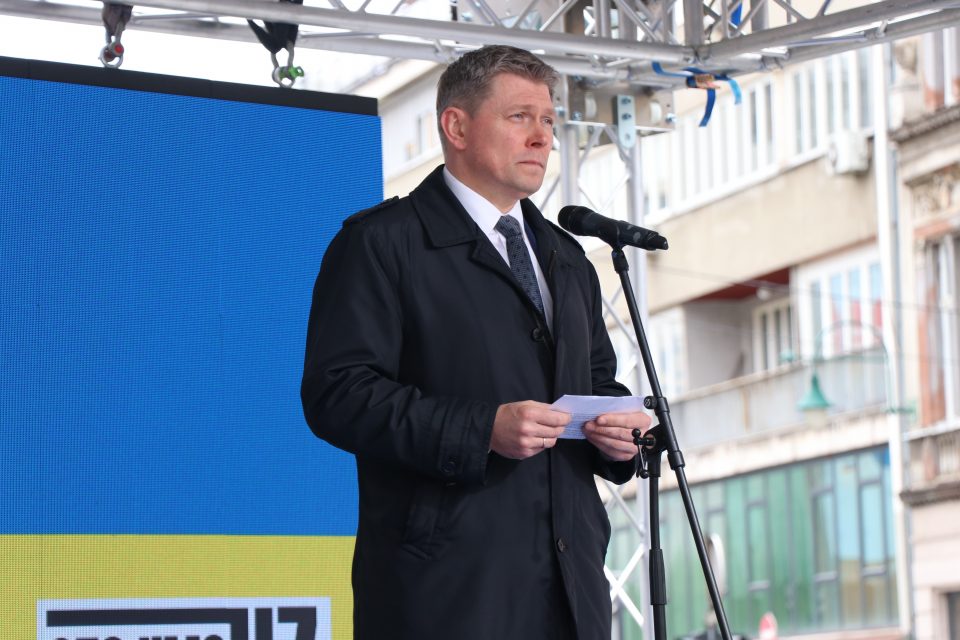
Dino Mustafić, director of the National Theater in Sarajevo where the peaceful protest was held, said that we all share the moral obligation to be on the side of Ukraine. “We know that no one ever gets messages in the long run. Our gathering today is proof to Ukrainians that they are not alone. Every war image from Ukraine evokes scenes from the 1990s. We know better than all of Europe what is happening there,” Mustafić said.
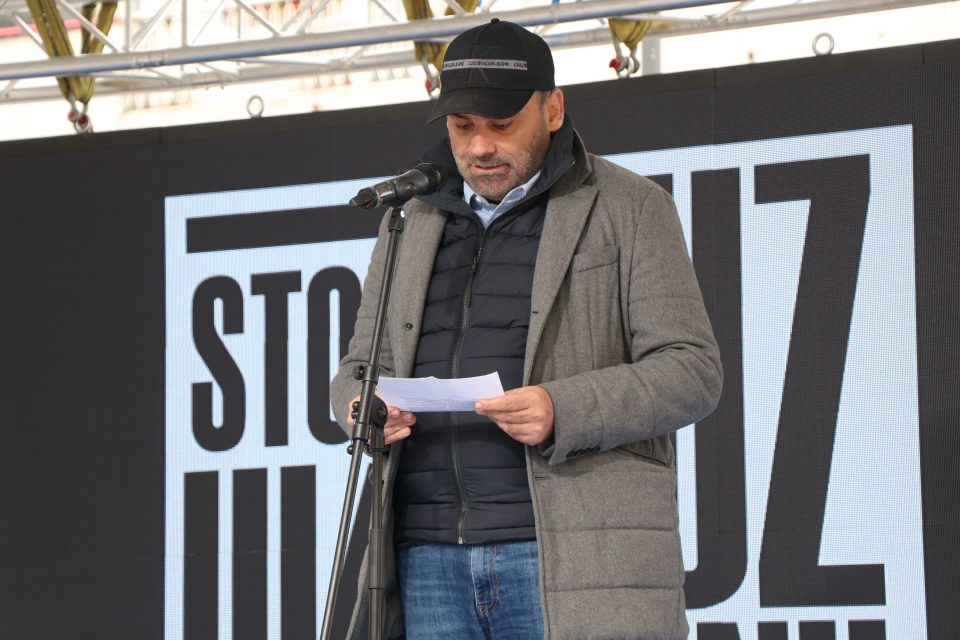
Tatjana Milovanović, program director of the Post-Conflict Research Center, explained that in the aggression against Ukraine, which began on February 24, 2022, thousands of civilians were killed, including over 130 children. Additionally, hundreds of thousands of people lost their homes, thousands of buildings were destroyed, including national monuments, hospitals, and historic buildings. “This peaceful protest was organized by the City of Sarajevo, civil society, and citizens, in support of the people of Ukraine and all innocent victims of hatred, division, and terror,” Milovanović said.
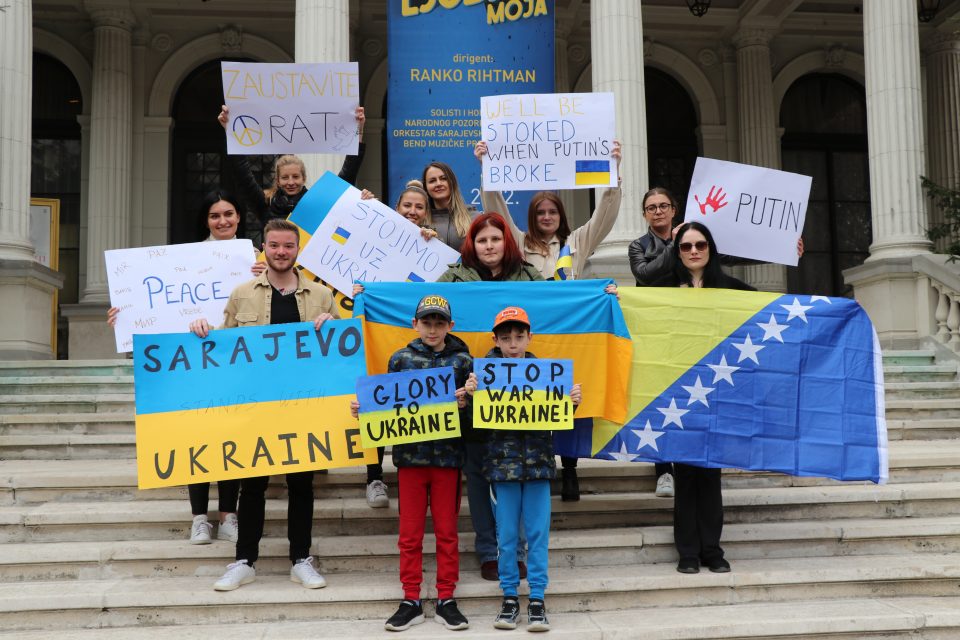
Many prominent cultural and political figures as well as diplomatic representatives from Great Britain, Norway, Poland, Austria, Slovakia, Sweden, Czech Republic and the USA joined those present in front of the National Theater for the “We stand with Ukraine” protest.
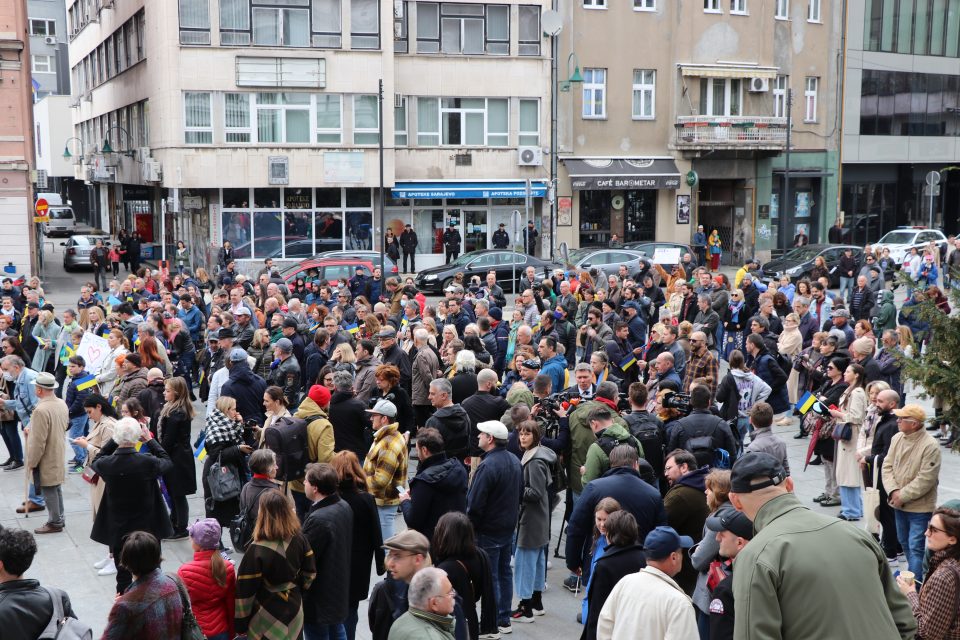
Saša Magazinović, state representative and representative of the Social Democratic Party (SDP), said that it was beyond a moral obligation in Sarajevo, but also in BiH, to speak out against the Russian aggression in Ukraine. “We are especially obligated to raise our voice against the Russian aggression – all of us who were hurt by the silence of others who turned their backs on us,” said Magazinović.
The peaceful protest “We stand with Ukraine” was accompanied by a cello performance by Belma Alić.
